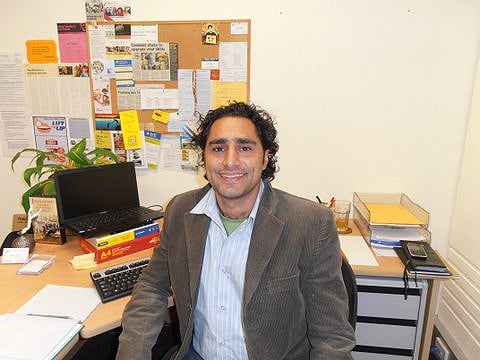
Mandy Nolan
Most Australians are unaware of the challenges that face refugees who live in their communities. Refugee Week is a national activity that involves conversation, education, and engagement about what it means to be a refugee in Australian society. St Vincent De Paul outreach support worker Leandro Mendes spoke with The Echo about refugee communities in the northern rivers and the need to embrace the many positive contributions they make.
The northern rivers has fewer refugee settlement numbers than other regional areas such as Coffs Harbour, which is one of the top three regional communities welcoming new arrivals.
‘There are various ways that refugees come to Australia,’ says Leandro, who believes that most of the population is generally misinformed about refugees and settlement strategies.
‘Refugees can come to Australia under offshore processing so when they arrive in Australia they are already a permanent resident.’
Coming here
Australia takes 13,000 refugees each year. ‘The others are sponsored by someone in Australia, either by a family who already lives here and they want to bring their family out or by a community organisation which acts as a sponsor to bring families out. I believe the Department of Immigration would prefer that was how most refugees came here.’
Many of the refugees settled in our region were brought here through a community organisation called Sanctuary. New Australians have come primarily from Democratic Republic of Congo, South Sudan, Sierra Leone and then numbers are scattered from various other countries. There are around 100 refugees settled throughout our region – from Murwillumbah through to Lismore.
One of the major issues that refugees face is employment.
‘I believe employment is one of the keys to help a person settle in a new country, it is one of the main issues.’
But of course, there are often issues for refugees gaining employment in Australia. ‘I can’t deny there is a certain level of discrimination,’ says Leandro, ‘but that gap can be closed. I have approached someone re work and they initially said that the person would not be allowed to work there as they weren’t allowed to, and then I told them that the vast majority of refugees have the same rights as other Australians as they have citizenship. Many employers don’t know this.’
Language can also provide a barrier to employment.
Soft skills
‘Yes, sometimes language is a problem,’ says Leandro. ‘Sometimes it’s an accent, or it’s difficult to learn the language. But that can be overcome. One of the main issues employers have in this region is soft skills – soft skills are a person’s ability to engage in group work, their ability to work with other people, to be motivated, to arrive on time, and to not be transitional. A huge problem here is that many workers will suddenly up and leave to go to another location – there’s a transience. I have been here and working in the area for nine years and I have never seen a group more motivated. They have a folder of six or seven certificates from TAFE, job provider courses, they are out here giving it their all, they acknowledge how lucky they are to be here and they want to give back.’
Very motivated
Although there may be language challenges, Leandro believes attitude well and truly compensates for this. ‘You have a person that is very motivated, and very often we are not talking about building a rocket, we are talking about maybe working in a cafe, or in Kmart.’
Many refugees have not only lost their country, and many of their family, very often highly skilled people must also cope with having their skills not recognised. People who are doctors, or dentists, or teachers in their country, must retrain for menial work once in Australia. ‘They don’t choose where they go, because they are sponsored by an organisation who brought them here, organised everything for them when they arrived. They need to make a go of it’.
A great many of the refugees are children, and are engaged in the education system. ‘We are talking about a community influence at a young level – in a school setting. In Lismore, on a day-to-day basis the influence is not clear; we may see an African lady all dressed up crossing the road, but the most important influence is that of the youth coming through. They are a major contribution to the economy and social fabric of regional areas.’
Refugee Week is about putting the experiences of refugees in our towns front and centre, and about finding ways to assist community engagement in social and work settings. Many refugees have experienced huge trauma, grief, loss of family, loss of country, loss of culture, loss of property, and they are having to start again.
‘The idea behind Refugee Week is Restoring Hope. It’s about raising awareness. Things are happening in Lismore, but not much happens in Byron, so this is a good opportunity to raise awareness there and to recognise what refugees can contribute. It’s about education. It’s the only way to turn people around.’
The Northern Rivers Refugee Fundraiser is in the Byron Theatre at the Byron Community Centre on Wednesday June 18 at 7pm.
This will feature a screening of the extraordinary Mary Meets Mohammad, with short films and guest speakers. Tickets are $15/$12 and can be purchased at www.byroncentre.com.au.
For more information on Refugee Week visit the website.




Thanks to all those who support refugees to come and live here.